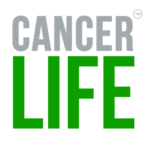CANCERLIFE ANNOUNCES LEADING NEUROECONOMIST DR. PAUL ZAK JOINS TEAM AS SENIOR SCIENTIFIC ADVISOR
INTRO
Paul Zak, PhD – Scientist. Author. Speaker. CancerLife’s Chief Scientific Advisor Paul Zak is on a lifetime mission to better understand and improve human connections. He is the founding Director of the Center for Neuroeconomics Studies and Professor of Economics, Psychology and Management at Claremont Graduate University. He has launched numerous companies and has authored two acclaimed books.Paul’s research on oxytocin and relationships has earned him the nickname “Dr. Love.” His 2012 book, The Moral Molecule: The Source of Love and Prosperity, recounted his unlikely discovery of the neurochemical oxytocin as the key driver of trust, love, and morality.
As a member of CancerLife’s Scientific Advisory Board, Paul’s research and knowledge are being used to help patients, survivors, and doctors understand and develop more meaningful relationships and improve their cancer care.
Part 1: Paul Zak & CancerLife: Question: Why have you taken on the role as Chief Scientific Advisor to CancerLife?
Paul: I was excited by how my 20 years of human connection research could be applied to healthcare, specifically for cancer care. I lost my mother to leukemia, so cancer really hits home.
Here’s what’s so exciting. Not only do healthy adults need human connection and the benefit of human connection, chronically ill patients need and desire the connection that will improve and extend their lives.
The work I do is often in a laboratory. I don’t get to save lives very often. I think CancerLife has the opportunity to save lives. To have an impact on even a few people’s lives and reduce their suffering and improve their quality of life is wonderful. I can’t think of a more important thing to do. I’m thrilled to help CancerLife help members of the human community live happier, healthier lives.
Question: Can patients and survivors play a bigger role in cancer care?
Paul: Perhaps the most misunderstood and under-valued component of cancer care is the role that human connection plays among patients and survivors. Humans need to connect. When we are isolated, we are not as calm and happy as we could be. When we are connected, we are calmer and happier. There are many things patients and survivors can do to become more proactive in their care. We just need to show them how, and I believe CancerLife can be their guide.
Question: What is your vision for CancerLife?
Paul: Charlie and his team understand that the more social support patients get, the better their outcomes: The more you share, the better your care. The goal is to continue to build something beyond just “another social network,” something more clinical in nature that lowers stress anxiety and depression through its design and user experience.
My laboratory will be at their disposal to test, measure, and design content and the user experience to clinically prove CancerLife improves outcomes. We will measure everything, so we can create a more trustworthy environment and experience that no cancer patient can live without, literally. I get good bumps thinking about being part of a something that can impact 23 million people each year, around the globe. (Continued Discussion in Part 2 and 3 of the Interview)
